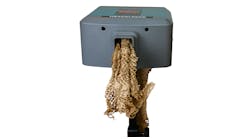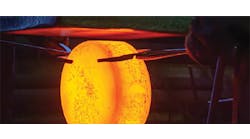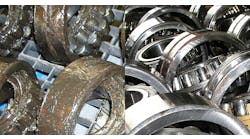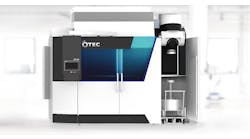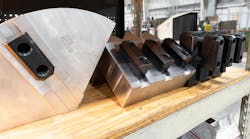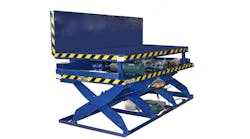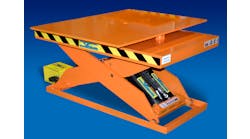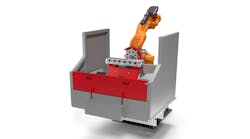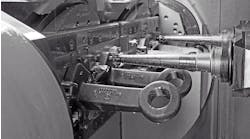RTI to Expand Forging, Other Operations Following Airbus Deal
May 21, 2006-- Following the pattern of its rivals, RTI International Metals is planning to expand its output of titanium products to the aerospace market. It has announced two expansion projects, which are supported by a recently agreed 10-year supply contract with Airbus.
The first investments are estimated at $35 million, to update and expand RTI's melting and forging operations. With detailing specific projects, RTI said the plan is to enhance flexibility and increase capacity for its mill products.
The second part of the investment effort is estimated at $43 million, and will support RTI's value-added operation, namely to add more machining capabilities and to expand conditioning capabilities for extrusions.
Both projects are underway, and RTI expects the new production capabilities to be available by the end of 2007.
Timothy G. Rupert, RTI president and CEO, stated: "These expansions reflect RTI's positive outlook for future growth and result from our success in landing a number of long-term aerospace contracts for increased mill product sales and value-added products from our fabrication and distribution businesses." He said the new capabilities would generate $100-150 million in new revenue.
The news of the investments followed RTI's announcement that it had entered into a 10-year agreement with Airbus to supply of titanium products for the latter's family of commercial aircraft, including the new A-380 and A-350 programs. The contract is seen generating more than $800 million in over 10 years.
RTI will produce forging-quality billets, blooms, and flat-rolled products from material that Airbus will supply. Shipments are seen beginning later this year, and will top 5 million lb/year by 2008. Additional value-added products and services are under discussion, according to RTI.
"This agreement represents a new level of cooperation in a long-standing supply relationship with Airbus," Rupert stated.
Airbus exec. v.p.-procurement Henri Courpron said the long-term agreement is part of its strategy to ensure its suppliers have the best materials and components for its aircraft.
